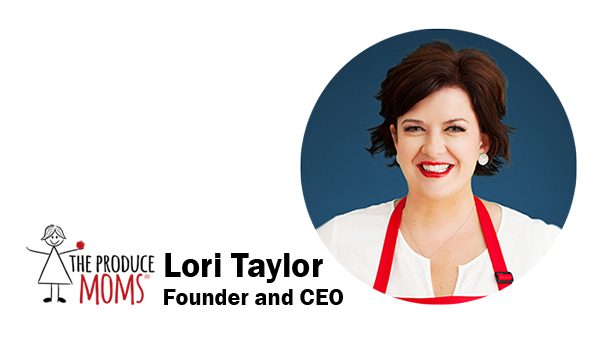Last week I grocery shopped for my monthly Produce Moms BB #:366223 lifestyle segments at Indianapolis local network WISHTV.
By the time I prepare and organize the list, as well as fulfill all the items on the list – it’s a minimum three hours of grocery shopping for ten minutes of live television.
Grocery shopping for a job is a lot different than grocery shopping for your personal life.
Yet we now have millions of professional shoppers picking out food for their customers. The produce industry has to treat these virtual shoppers as stakeholders and educate them how to best serve their customers high quality fruits and vegetables.
Grocery shopping requires a keen attention to detail, in-store familiarity, and most importantly – a strong understanding of fresh food, specifically produce.
Additionally, shopping for fresh produce is a skilled labor job. Similar, in fact, to the skilled labor in our fields.
The momentum — and investment — behind this stakeholder cannot be overlooked.
On October 8th Instacart raised $200 million as part of a new financing round, which brings the Silicon Valley startup’s valuation to $17.7 billion.
Instacart has surpassed sales goals that were projected for 2025, accelerated by the spiked consumer demand for grocery shopping as a service due to Covid-19.
Instacart recently partnered with Mastercard for a shopper rewards program. And like many produce stakeholders, Instacart is aggressively pursuing the c-store business, announcing an alignment with 7-Eleven last month.
In April, on the heels of the shelter-in-place orders, Instacart hired 250,000 shoppers. With the recent financing round, hundreds of thousands of additional new employees or virtual shoppers are expected.
How are these virtual shoppers learning about fresh fruits and vegetables? What education or training exists to ensure fulfillment in the produce department?
• The produce industry – through private sector leadership or trade organization leadership – needs to create a training course that is commissioned to virtual shopping platforms for job training.
• The virtual shopper platform needs to identify real-time produce department substitutions beyond organic or conventional to increase fulfillment percentages in fresh produce.
• Produce brands should create resources for virtual shoppers and online shoppers as part of their ongoing consumer marketing efforts.
A quick review of Instacart’s Glassdoor account shows the high and low marks from employees about workplace satisfaction come from the same place: Lack of training.




Virtual shoppers are a rising power with a direct impact on our end consumer’s satisfaction.
There are millions of virtual shoppers in America, most with little to no training on fresh fruits and vegetables. This is a threat to our industry and an opportunity.
The education surrounding how to select produce at point of sale as well as viable substitutions within the department are lacking. It’s in the produce industry’s best interest to create the resources and fill the education gap for virtual shoppers.
We do not want to sit idle and allow another industry to craft the narrative and educational resources about fruits and vegetables.



